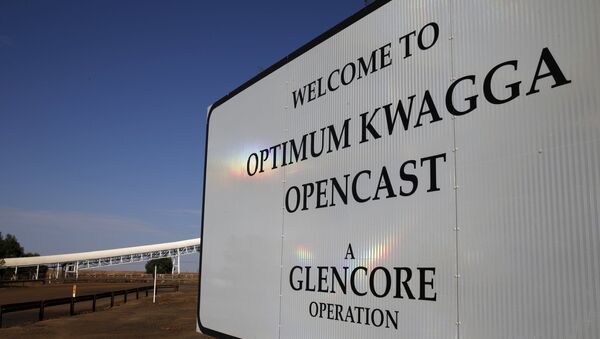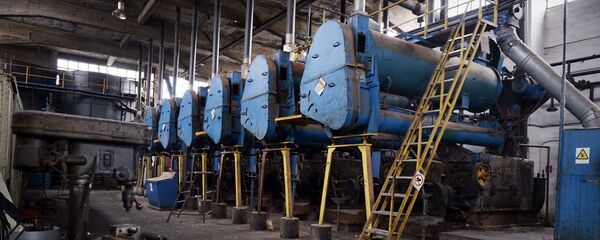Kristian Rouz – Glencore Plc., the Anglo-Swiss mining and commodity trading giant, finds itself on the edge of a financial collapse due to the slower global demand for raw materials and metals, exacerbated by weak consumer demand for manufactured goods amidst overproduction worldwide. Having suffered a massive crash of its market capitalization during the past 12 months, Glencore is now selling its least lucrative subsidiaries, stirring a significant concern amongst international commodity investors.
The Baar, Switzerland-based commodity multinational giant, Glencore, suffered a major crash of its stock exchange value, dropping a massive 17.4% in London on Monday, the greatest single-day decline since the company’s equities were first listed at the London Stock Exchange (LSE) in 2011. Glencore’s market value shrank by 76% during the past 12 month due to the decline in global commodity prices: the slowing mainland China’s economy resulted in a dramatic drop in demand for metals and minerals. Glencore’s energy business also suffered as global crude prices have held firmly low since late last year.
This month only, Glencore value shrank by $14 bln, and the company’s leadership is seeking to sell come of its least coat-efficient subsidiaries. In Brazil, the local enterprise Horizonte Minerals purchased Glencore’s nickel extraction and exploration operations for only $8 bln on Monday, while the Anglo-Swiss giant commented on the deal by saying the company would continue selling off its non-core assets across the globe.
Glencore might introduce a tougher restructuring strategy in order to avoid its final demise. Currently, Glencore is heavily indebted as the company had had ambitious plans to expand its operation in multiple directions before the commodity slump that started in mid-2013 and accelerated dramatically in late 2014. Meanwhile, shareholders are in a hurry to sell Glencore’s stock as there is little confidence the company will be able to manage its heavy debt burden. Glencore’s CEO Ivan Glasenberg last Friday introduced his vision of a debt-restructuring scenario; however, it failed to impress investors.
Thus far, as market participants generally believe commodity prices will stay low in the medium-term at best (that is, three years from now), commodity enterprises might opt to consolidate their budgets and cut excessive costs and investment. However, as Glencore is already collapsing, cost-saving measures might be too late to undertake.
Total value of Glencore’s debt in bond securities due in March 2021 is 1.25 bln euros ($1.4 bln). Glencore’s shares dropped to 68.68 pence from 110 pence on 24 September, whilst the company’s debt retreated 7 euro cents to 74 cents, effectively pushing yield up. However, Glencore’s debt insurance against default costs rose by 29% on Monday only.
Glasenberg’s emergency plan also includes issuance of $2.5 bln worth of new shares, suspending dividend payments, and decrease in corporate spending. These measures will, however, further depress Glencore’s share value.
Glencore’s demise may result in the company’s partition in case its current leadership fails to provide a sound solution to the financial difficulties. The enterprise’s currently significant presence in emerging markets will thus cause an additional downward pressure on prices. Moreover, as Glencore is leading foods exporter in Russia, the European Union, Canada and Australia, global grain prices might also slump due to tougher competition entailing Glencore’s crash.





